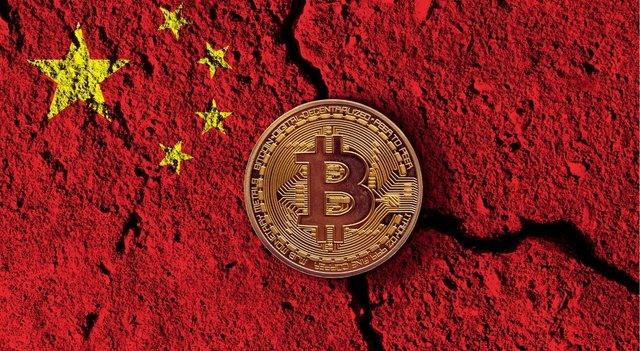Bitcoin faces selling pressure with resistance at $63,000
Bitcoin (COIN:BTCUSD), after reaching $64,448 on October 7, briefly dipped below $62,000, currently trading at $62,200, nearly unchanged over the last 24 hours. Selling pressure observed on Coinbase, along with China’s underwhelming economic stimulus, suggested a bearish outlook. The National Development and Reform Commission (NDRC) briefing lacked clear details, frustrating investors, impacting the digital asset market. Despite significant inflows into ETFs on Monday, Bitcoin struggles to stay above its 50- and 100-day moving averages, facing resistance around $63,000.
Bitcoin ETFs attract new investments, while Ethereum ETFs remain neutral
On October 7, 2024, Bitcoin ETFs began the week with strong optimism, receiving $235.19 million in new investments. Fidelity’s Wise Origin Bitcoin Fund (AMEX:FBTC) led with $103.68 million, followed by BlackRock’s iShares Bitcoin Trust (NASDAQ:IBIT) with $97.88 million. Other funds, like Bitwise’s (AMEX:BITB) and ARK 21Shares (AMEX:ARKB), also recorded inflows, strengthening confidence in the market. Meanwhile, Ethereum ETFs remained completely neutral, with all nine ether ETFs registering zero flows. The last occurrence was on August 30.
Bitcoin miners face revenue decline despite rising hash rate
In September, publicly traded Bitcoin miners experienced their third consecutive month of daily revenue decline, impacted by increasing network difficulty. The network’s hash rate grew by 2% compared to August, but earnings per EH/s dropped 6%, averaging $42,100. Despite Bitcoin gaining 7% in value, miners like Marathon Digital (NASDAQ:MARA) and Riot Platforms (NASDAQ:RIOT) excelled in production, while companies like Cipher Mining (NASDAQ:CIFRW) sold much of their BTC.
BitcoinOS and B² Network collaborate to integrate ZK-based trustless bridge
BitcoinOS (COIN:BOSUSD) is partnering with B² Network to launch the Grail bridge by the end of 2024. This integration will enable secure BTC asset movement between networks using zero-knowledge (ZK) proofs. It will also strengthen Bitcoin’s Layer 2 infrastructure, allowing faster and more secure transactions, while supporting applications like DeFi and NFTs. The partnership enhances DeFi security and scalability on Bitcoin, with B² Network benefiting from EVM compatibility and high speed.
Scroll to launch SCR token for decentralization and governance
Scroll, a Layer 2 scalability solution for Ethereum’s blockchain ecosystem, announced the launch of its SCR token. The token will be used for governance and decentralization of its Layer 2 network. The launch is set for October 22, with 7% of the tokens distributed via airdrop. SCR will also support the decentralization of prover and sequencer components. The team plans to distribute 15% of tokens via airdrops, while 5.5% will be allocated to Binance Launchpool.
Vulnerability in NEAR protocol could have frozen the entire network
The NEAR Protocol (COIN:NEARUSD) had a severe vulnerability that allowed an attacker to freeze all network nodes, potentially shutting it down. Discovered by Zellic and fixed in January, the flaw involved SECP256K1 signature verification, causing node crashes. While no attack occurred, the issue was described as a “Web3 Ping of Death.” The NEAR team rewarded Zellic with $150,000 for the discovery and quietly applied the patch.
Crypto.com sues SEC to defend cryptocurrency industry in the US
Crypto.com filed a lawsuit against the US Securities and Exchange Commission (SEC) on October 8. CEO Kris Marszalek stated the lawsuit aims to combat the SEC’s “regulation by enforcement,” which he argues harms millions of crypto holders. The exchange also requested the SEC and CFTC to categorize crypto derivative products. The lawsuit follows Crypto.com receiving a Wells notice from the SEC.
Reconciliation failure exposes inadequate control at FalconX and Binance
Crypto brokerage FalconX held 1.35 million Solana tokens (COIN), valued at $190 million, without control for years. Binance, a liquidity partner, recently claimed ownership of the tokens. According to CoinDesk, both companies confirmed a “reconciliation anomaly” and returned the assets to Binance. The incident highlights fragile controls in the crypto sector, where major audit firms like PwC point to an immature control environment in digital finance.
Alchemy Pay integrates cryptocurrency payments into Samsung Pay
Alchemy Pay, a leading crypto payments provider, integrated its virtual cards into Samsung Pay, allowing 500,000 users to make crypto payments. This feature follows Alchemy Pay’s recent integration with Google Pay and extends its services to retailers like Amazon, Netflix, and Apple Store. The company anticipates significant demand from this partnership, enhancing its presence in digital payments and expanding support for Visa, Mastercard, and other networks.
HBO documentary fuels speculation about Nick Szabo being Satoshi Nakamoto
HBO’s documentary The Bitcoin Mystery has reignited theories about the true identity of Satoshi Nakamoto, pointing to cryptographer Nick Szabo as a possible candidate. Szabo, known for creating the Bit Gold concept, a precursor to Bitcoin, and for his contributions to blockchain technology, has often been linked to Nakamoto due to similarities in their work. Szabo denies being Satoshi, while his expertise continues to fuel speculation in the crypto market. Although Satoshi’s identity remains unknown, their anonymity is seen as essential to Bitcoin’s decentralized ethos. With a fortune estimated at 1 million bitcoins, revealing Satoshi’s identity could impact the market, but many believe preserving their anonymity is crucial for Bitcoin’s integrity.
